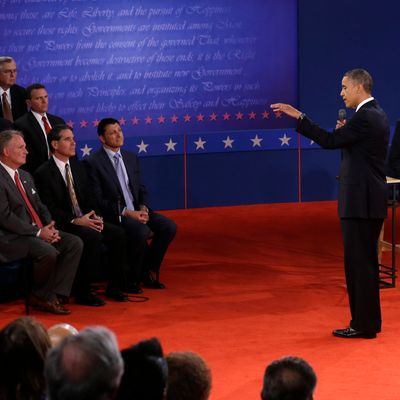
Political scientists have models showing, or purporting to show, how people vote. They differ on the specifics but share certain basic precepts: The state of the economy is the paramount determinant of which candidate will win, along with such things as how long the incumbent party has held office, whether we’re at war, and so on. What makes these models so counterintuitive is that they treat the thing many of us follow obsessively — the campaign — as an irrelevancy. Indeed, they relegate political thought itself to the sidelines of the process. It is an unsettling vision of the voters as automatons, unmoved by appeals to reason or fear or even campaign ephemera.
It is instinctively hard to accept such a grim assessment of American democracy. But then comes along H.G.“Buzz” Bissinger to show us just how it all works.
In case you missed the Bissinger backstory, let me recap. Buzz Bissinger is a famed sportswriter and recreational spewer of insults on Twitter. He wrote a column for the Daily Beast declaring his support for Mitt Romney and was widely disparaged as a “low-information voter,” which led to predictable insult-spewing, which in turn led to the genius move of this very publication bringing Bissinger together with one of his critics, Jamelle Bouie, for a rousing political debate.
It is fair to say that Bissinger did little to convince his critics that he did not deserve the “low-information voter” tag. He is clearly not a no-information voter. He has information. But not much, and the information at his disposal seems to be either irrelevant or, more frequently, points in the opposite direction of his conclusion. He lambastes the stimulus as too small, Dodd-Frank as too weak, and health-care reform as admirable but ill-timed. But Romney opposed the stimulus as too large, and proposes to repeal Dodd-Frank and to support a filibuster-proof reconciliation bill to repeal Obamacare. He thinks the government is becoming the major employer in America.
By subjecting himself to a debate at the hands of a smart analyst like Bouie, Bissinger is providing a window into the mind of an undecided voter. Most voters are partisan, and their partisanship is at least partly rational. They — we — share at least part of the value system of one of the two party coalitions. We oppose abortion or want to do more for the poor or favor more spending on defense, and we recognize the party promoting those positions.
You do have some voters torn between competing positions. But more of the swing voters are people like Bissinger. As he writes in his first entry, “I no longer have faith in Obama as a leader and man of inspiration. Brilliant, yes. But we are in malaise.” From there, he attempts to justify his stance. His justification probably feels like reasoning. He has the sense that things in America have been bad — and he’s right! — so he decides he wants a different president and then backfills in the rationale.
That’s incredibly common. I remember tearing my hair out in 2000 when I saw an undecided voter on a televised focus group announce she was supporting George W. Bush because of his plan to create national health insurance. Of course, Democrats win voters that way, too. Bouie’s attempts to define Bissinger’s issue preferences and steer them toward the candidate promising to enact them were hilariously, hopelessly doomed. When Obama and Romney try to rope in undecided voters that same futility is often at work — much as we might wish otherwise.






























